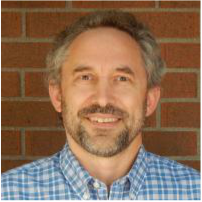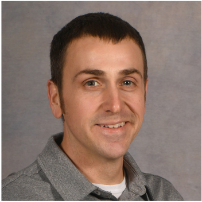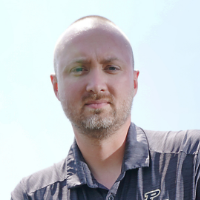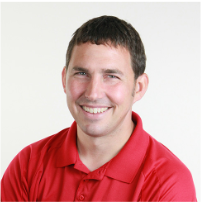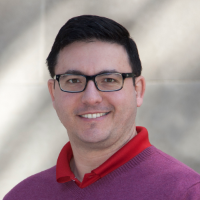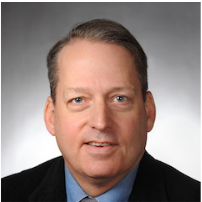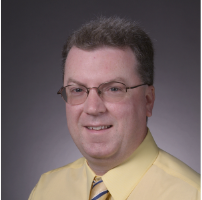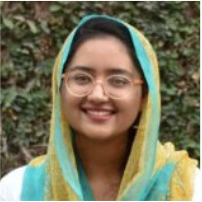
Crop Management Topics
Printable conference program
-
1. Outlook 2024: El Niño, drought and a whole lot more! (1.0 CM)
Dennis Todey, director, USDA Midwest Climate Hub, USDA-ARS, Ames, IA
Drought in Iowa has been in place since 2020 and continues to impact agriculture, water and a variety of other issues. A very strong El Nino is in place for the winter of 2023-24. What do these all mean for next spring and growing season? We'll review soil moisture situations and the possibility of refilling the soil moisture profile. Come find out what 2024 looks like!
Session E - Monday, 1:00 PM - 1:50 PM
Session F - Monday, 2:00 PM - 2:50 PM
-
2. Crops and cold rains: How crop stand can be affected by weather after early planting dates (1.0 CM)
Alex Lindsey, associate professor, Crop Ecophysiology, The Ohio State University, Columbus, OH
Early planting may be of interest for farmers, but with varied weather in spring it could come with some risk of very cold temperatures (and precipitation). This talk will highlight some issues to anticipate in soybeans and corn if cold weather hits after planting, both from past work as well as ongoing current research projects.
Session I - Tuesday, 8:00 AM - 8:50 AM
Session J - Tuesday, 9:00 AM - 9:50 AM
-
3. We didn't start the fire! Understanding wildfire smoke and heat stress impacts on corn (1.0 CM)
Dan Quinn, assistant professor, Agronomy and Extension Corn Specialist, Purdue University, West Lafayette, IN
In recent years, many major corn producing areas have experienced an increase in heat stress and air quality concerns during the summer due to increased climate variability and elevated incidence and severity of wildfires in Canada and the western U.S. In late-June of 2023, air quality warnings were issued throughout the Midwest and Canada due to smoke caused by severe and widespread wildfires, which resulted in a noticeable haze and reduction in direct sunlight. Therefore, not only are these stresses a concern for human health, the question that is also asked by many farmers is “how is the heat stress and smoke impacting crop development?” This presentation will be aimed at providing some insight to these questions and how heat stress and wildfire smoke may (or may not) cause harm to corn development and yield.
Session E - Monday, 1:00 PM - 1:50 PM
Session F - Monday, 2:00 PM - 2:50 PM
-
4. Out of the box soybean management (1.0 CM)
Mark Licht, associate professor and extension cropping systems specialist, Agronomy, Iowa State University, Ames, IA
Over the last couple of years, soybean have been planted earlier and earlier. Add to it the cost of soybean seed has been increasing. This session will provide considerations for ultra early soybean planting but also some insights on ultra low seeding rates.
Session M - Tuesday, 1:00 PM - 1:50 PM
Session O - Tuesday, 3:00 PM - 3:50 PM
-
5. It's not the size of the corn but how it yields (0.5 CM)
Mark Licht, associate professor and extension cropping systems specialist, Agronomy, Iowa State University, Ames, IA
Short stature corn hybrids are the new wave in corn genetics. This session will explore what we know about short stature corn hybrids and performance from trials in 2023.
Session C - Monday, 11:00 AM - 11:25 AM
Session D - Monday, 11:35 AM - 12:00 PM
-
6. Changes to corn hybrids over the last 40 years (1.0 CM)
Sotirios Archontoulis, professor, Agronomy, Iowa State University, Ames, IA
I will present results from a large-scale experiment (100 site-years across the Corn Belt) we performed to quantify Bayer Legacy maize hybrids' genetic gains and changes to nitrogen use efficiency, grain protein, water use efficiency and rooting depths over the last 40 years.
Session A - Monday, 9:00 AM - 9:50 AM
Session B - Monday, 10:00 AM - 10:50 AM
-
7. Does grazing winter cereal rye in Iowa make it profitable? (0.5 CM)
Alejandro Plastina, associate professor and extension economist, Economics, Iowa State University, Ames, IA
We used experimental agronomic data from six location-years in Iowa to estimate private net returns to cereal rye across alternative scenarios in a partial budget framework. Net returns in the absence of grazing were negative for 82.2% of the treatments, while net returns under partial grazing were negative for 54.8% of the treatments. Early-broadcast cereal rye produced higher biomass and larger net cost savings in the livestock enterprise than late-drilled cereal rye, but it also resulted in higher corn yield penalties. In the no-grazing scenario, net losses for early-broadcast cereal rye were larger than for late-drilled cereal rye. Our findings shed light on the low probability of obtaining positive annual private net returns to cereal rye in Iowa in the absence of sizable targeted financial incentives.
Session C - Monday, 11:00 AM - 11:25 AM
Session D - Monday, 11:35 AM - 12:00 PM
-
8. Tracking the quality and production of 2023 Iowa corn and soybeans (1.0 CM)
Charles Hurburgh, professor, Agricultural and Biosystems Engineering and professor in charge, Iowa Grain Quality Initiative, Iowa State University, Ames, IA
The 2023 growing season featured erratic weather to say the least. This session will summarize the use and handling qualities of this crop after riding through the ups and downs of rain and heat.
Session K - Tuesday, 10:10 AM - 11:00 AM
Session L - Tuesday, 11:10 AM - 12:00 PM
-
9. Crop markets in 2024: Can we get back to normal? (1.0 CM)
Chad Hart, professor and extension economist, Economics, Iowa State University, Ames, IA
We'll explore the factors currently shaping ag markets, investigate the impacts of the general economy and trade on crops, and discuss potential profitability and marketing opportunities for the coming year. It doesn't get any better than that.
Session A - Monday, 9:00 AM - 9:50 AM
Session B - Monday, 10:00 AM - 10:50 AM
-
10. Roots and returns: Iowa farmland values and ownership dynamics (1.0 CM)
Rabail Chandio, assistant professor, Economics, Iowa State University, Ames, IA
In this session, I will take a closer look at Iowa's farmland market, examining its historical trends and evolving ownership demographics. We'll also uncover key insights into the factors driving the fluctuations in land values over time in this dynamic Midwest agricultural landscape.
Session I - Tuesday, 8:00 AM - 8:50 AM
Session J - Tuesday, 9:00 AM - 9:50 AM
